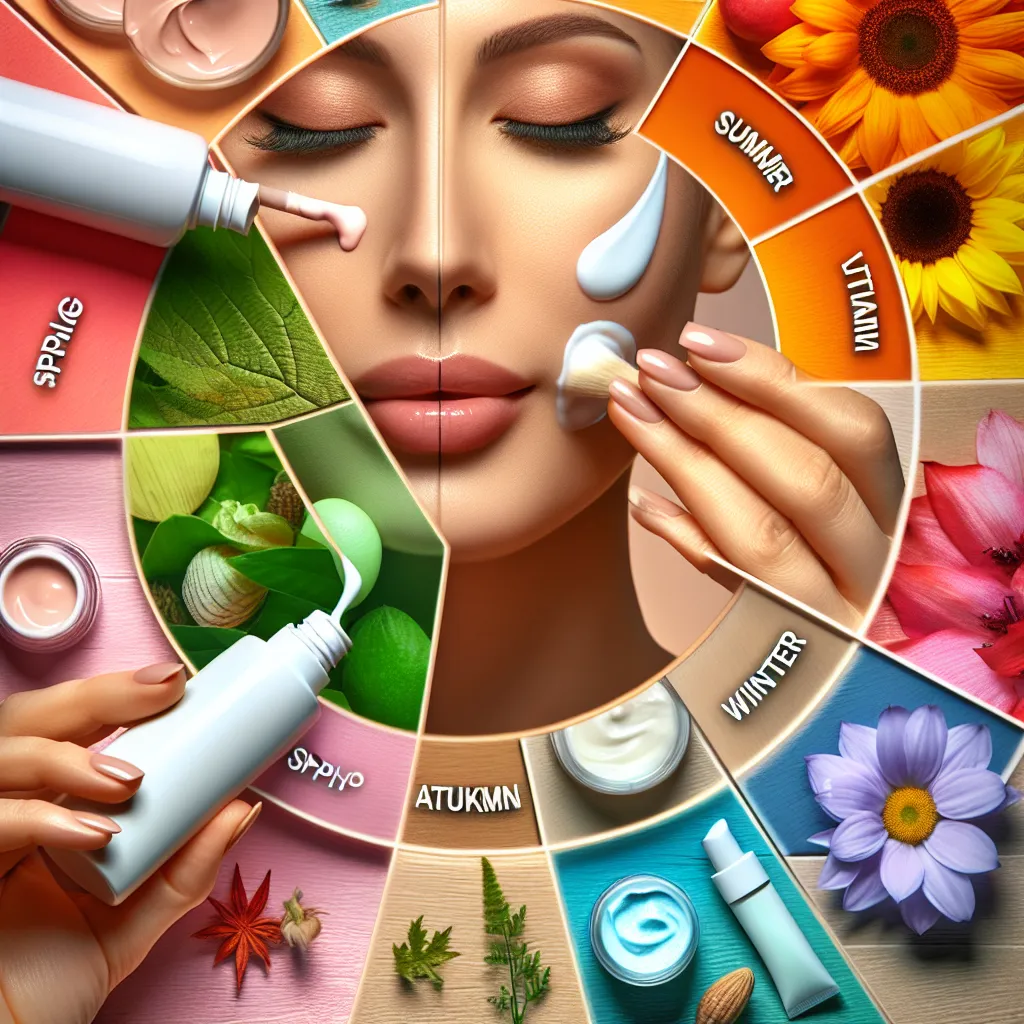Understand Your Skin Type
Understanding your skin type is the crucial first step in establishing an effective nighttime skincare routine. There are generally four main skin types: oily, dry, combination, and sensitive. Identifying which category your skin falls into will help you choose the most appropriate products and treatments for your nighttime regimen.
Oily skin is characterized by excess sebum production, leading to a shiny complexion and enlarged pores. For this skin type, it’s important to incorporate oil-free and non-comedogenic products to avoid exacerbating the natural oils already present in the skin.
Dry skin often feels tight and may be prone to flakiness or rough patches. Look for hydrating and moisturizing products containing ingredients like hyaluronic acid and glycerin to help replenish and retain moisture in the skin.
Combination skin presents with both oily and dry areas, typically an oily T-zone (forehead, nose, and chin) and dryness elsewhere. Balancing products that address both concerns without over-drying or over-moisturizing are ideal for this skin type.
Sensitive skin is easily irritated and may react to certain ingredients or environmental factors. Opt for fragrance-free and gentle formulas to minimize the risk of irritation and allergic reactions.
Once you’ve determined your skin type, you can tailor your nighttime skincare routine to address your specific needs, promoting healthier and more radiant skin.
Cleanse Properly
One of the most crucial steps in an effective nighttime skincare routine is to cleanse properly. Proper cleansing is essential to remove makeup, dirt, and excess oil from the skin, allowing it to breathe and repair during the night. When choosing a cleanser, opt for a gentle, pH-balanced formula that suits your skin type, whether it’s dry, oily, combination, or sensitive.
To cleanse properly, start by wetting your face with lukewarm water, then apply a small amount of cleanser and gently massage it into your skin using circular motions. Pay attention to areas with makeup or a buildup of oil. After thoroughly cleansing, rinse with lukewarm water and gently pat your face dry with a clean towel. Avoid using hot water, as it can strip the skin of its natural oils, leading to dryness and irritation.
Proper cleansing sets the foundation for the remaining steps in your nighttime skincare routine, allowing the products to penetrate the skin effectively. By ensuring your skin is clean before applying serums, treatments, and moisturizers, you maximize their benefits and promote overall skin health.
Remember, a well-cleansed skin is the first step towards achieving a radiant and healthy complexion.
Targeted Treatments
When it comes to an effective nighttime skincare routine, targeted treatments play a crucial role in addressing specific skin concerns. Whether it’s acne, hyperpigmentation, fine lines, or uneven texture, incorporating targeted treatments into your regimen can make a significant difference in the overall health and appearance of your skin.
The first step in implementing targeted treatments is to identify your specific skin concerns. This could involve consulting with a dermatologist or skincare professional to determine the best course of action. Once you have a clear understanding of your skin’s needs, you can begin to explore targeted treatment options.
Common targeted treatments include serums and creams formulated with potent ingredients such as retinol for anti-aging, niacinamide for brightening, or salicylic acid for acne-prone skin. These products are designed to penetrate the skin at a deeper level to deliver active ingredients that address specific concerns.
When incorporating targeted treatments into your nighttime skincare routine, it’s essential to apply them after cleansing and toning the skin. This allows the active ingredients to effectively penetrate the skin without any barrier from other products.
Consistency is key when it comes to targeted treatments. It’s important to use them regularly as part of your nighttime routine to see visible improvements in your skin over time. Additionally, it’s crucial to follow up with sunscreen during the day, especially when using targeted treatments that may increase sun sensitivity.
In conclusion, targeted treatments are a valuable addition to an effective nighttime skincare routine, providing a tailored approach to addressing specific skin concerns. By understanding your skin’s needs and incorporating the right targeted treatments, you can elevate your nighttime skincare regimen and achieve healthier, more radiant skin.
Importance of Moisturizing
Moisturizing is a crucial step in any nighttime skincare routine. It helps to replenish the moisture that your skin might have lost during the day and creates a protective barrier to keep your skin hydrated overnight. Choosing the right moisturizer for your skin type is essential. For dry skin, opt for a rich and nourishing cream, while those with oily skin should look for a lightweight, non-comedogenic formula.
Applying moisturizer before bed also aids in the regeneration and repair of skin cells as you sleep. This is the time when your skin is in recovery mode, and providing it with the hydration it needs can enhance this natural rejuvenation process. Additionally, a well-moisturized skin is more resilient and better equipped to combat signs of aging, such as fine lines and wrinkles.
Furthermore, incorporating a moisturizing step into your nighttime routine can also have a positive impact on specific skin concerns, such as redness, irritation, or uneven skin tone. Look for moisturizers containing ingredients like hyaluronic acid, niacinamide, or ceramides, which can help address these issues and promote a healthy complexion.
In conclusion, never underestimate the power of moisturizing in your nighttime skincare regimen. It not only nourishes and protects your skin but also supports its natural renewal processes, ultimately leading to a more radiant and youthful-looking complexion.




